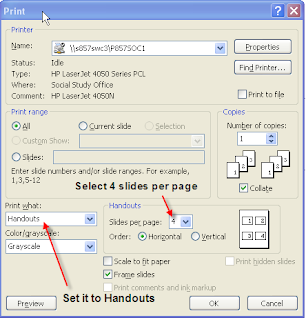I went through a PowerPoint presentation today called "The Legacies of Historical Globalization in Canada". I will be sending this presentation to you by e-mail, so please make sure that you print it off (4-6 slides per page) and add it to your notes. I also did a homework check to see if you printed off your "Legacies of Historical Globalization" PowerPoint presentations. You don't have school until Wednesday, so I would use this time to work on your Imperialism Research Projects. Don't feel the need to jump into building a PowerPoint presentation or a
Prezi right away, you should use this time to get the research completed. I really urge you to use some online collaborative tools, such as
Google Docs, so you don't have to meet face-to-face with your partner (if you have a partner) if you have a busy weekend planned. You will have your Chapter 7 Test on Monday, October 19th. I am posting the study guide for this test, please use this study guide (I recommend copying it and pasting it into a Word document) to focus your review efforts.
This quiz will have three sections: a matching section, a multiple choice section, and a short answer section.
1. Key Terms for Chapter 7 Quiz:
- historical globalization
- the Silk Road
- international trade
- the Columbian exchange (the grand exchange)
- mercantilism
- capitalism
- free market
- Adam Smith
- entrepreneur
- communism
- industrialization
- the Industrial Revolution
- cottage system
- physiocrats
- exploitation
- imperialism
- Eurocentrism
- ethnocentrism
- European imperialism
- "old" imperialism
- "new" imperialism
- colony
- protectorate
- sphere of influence
2. Study the Questions for Inquiry from Chapter 7 (be able to answer these questions using case studies and examples that we have covered in class):
- What were the beginnings of global trading networks?
- What values are associated with capitalism?
- Whose values did industrialization effect?
- Why did England industrialize before other European powers?
- What were some of the effects of the Industrial Revolution?
- In what ways did imperialism benefit one people over another?
You wrote your Market Economy and Mixed Economy Exam today. After you finished this exam you were to pick up the handout called "Changes to the Soviet System After Stalin", this will help bridge the gap between Stalin and Gorbachev. We'll be looking at political and economic reforms of Mikhail Gorbachev on Wednesday of next week, and then next Thursday (October 15th), you'll have an exam that covers all of the economic systems, please see the study guide below for this test.
This is a comprehensive exam that covers all of the major economic systems: market economy, mixed economy, and command economy. It is 70 multiple choice questions. This exam will be administered on Thursday, October 15th.
- Chapters 3-6 in Perspectives on Ideology
- study the applicable PowerPoint presentations that I have sent you for Unit 2
- In Chapter 5, just focus on the Soviet Union, and left-wing of economic spectrum (command economy), we haven't covered aspects of dictatorships or Nazism yet (the techniques of dictatorship and fascism will be on a Chapter 5 Test)
- please see the summary notes from the Ideologies textbook: Chapter 7 (Private Enterprise)
- supply-side economics
- boom and bust cycle/business cycle
- laws of supply and demand, Adam Smith, invisible hand, market forces
self-interest, consumer sovereignty, competition, private ownership, profit motive - basic economic problems/questions
- advantages/disadvantages of the market economy
- causes of the Great Depression
- FDR and the New Deal
- please see summary notes from the Ideologies textbook on the Mixed Economy Case Studies #14 (Sweden) and #15 (Canada), #16 (Japan), #17 (Fascism and Nazism)
- also see the Democratic Socialism booklet on Sweden (indicative planning, "cradle to the grave" economics)
- characteristics of a mixed economy
- nationalization
- privatization
- democratic socialism
- welfare capitalism
- Keynesian economics
- the business cycle and fiscal and monetary policies (study all of the notes I gave you and the booklet that I gave you)
- demand-side economics
- neo-conservatives
- monetarism
- trickle down economics
- supply-side economics
- Thatcherism and Reaganomics
- Milton Friedman
- Friedrich Hayek
- how Keynesian economics deals with a recession (remember "the percolator": increase circulation of money reducing taxes, increase government spending on "make work" projects, and reduce interest rates, which according to Keynesian economics is going increase demand for goods and services and lead to more money circulating in the economy)
- how supply-side economics deals with a recession (remember "trickle down coffee maker": government should stimulate the goods and services sector of the economy by reducing corporate and personal taxes, eventually benefits will "trickle down" to the middle class and working class, make connections between supply-side economics and laissez faire economics/classical liberalism)
- advantages and disadvantages of a mixed economy
- neo-conservative criticism of government intervention
- characteristics of a centrally planned economy
- advantages and disadvantages of a centrally planned economy
- Marx notes (sent by e-mail)
- Lenin notes (sent by e-mail)
- establishment of the Soviet Union
- Soviet economic system (top-down decision-making process)
- Lenin's War Communism and the New Economic Policy
- "Stalin and the Modernization of Russia" (see film notes)
- Stalin notes (sent by e-mail)
- "Changes to Soviet Society After Stalin" notes (this bridges the gap between Stalin and Gorbachev)
- Gorbachev to Collapse Notes (you'll get these notes on Wednesday, October 14th)
- Economic Planning in the USSR (again, you'll get these notes on Wednesday, October 14th)



